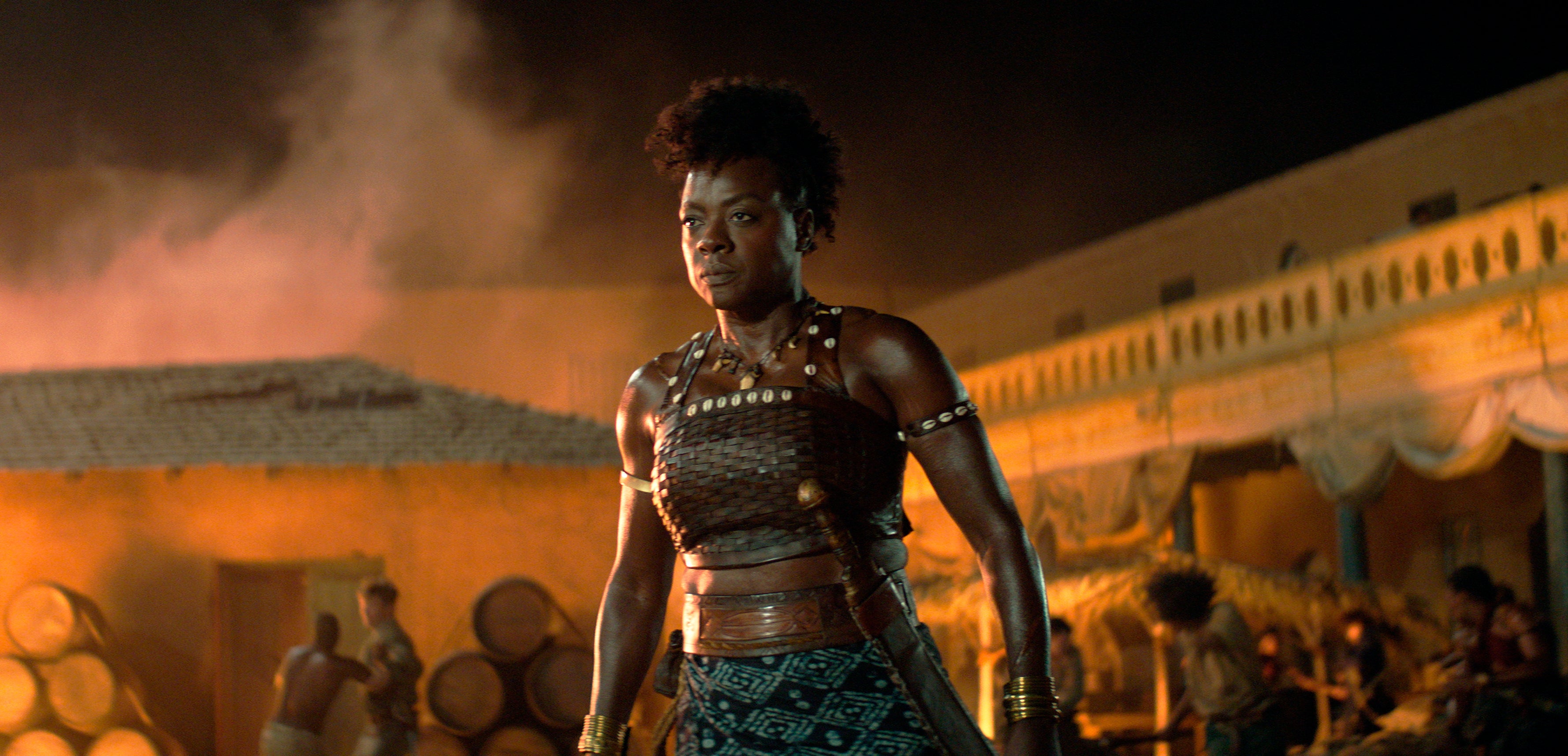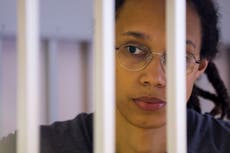I’m sick to death of Black pain as entertainment. That’s why I loved The Woman King
It was frankly refreshing for a moment to get lost in a story where Black people — Black women in particular — get to triumph

Viola Davis in ‘The Woman King’
I was about ten minutes into The Woman King when I posted a note on social media that read: “Pretty sure I know where at least some of my Mom’s ancestors come from.” The depiction of a fierce community of warrior women in 1800s Africa was one that resonated with me in a way that few depictions of Black women in the past really have.
My own family tends to be very matriarchal — not unusual for African American households, but mine is perhaps more so than usual. I come from a long line of fierce and intelligent black women on my mother’s side, all of whom have overcome some pretty intense history, generally by leaning on each other rather than on any traditional, heteronormative family structure or even larger community structure. The level of independence found among the women in my family has often caused trouble in romantic relationships, but it’s also kept the family on steady ground for generations.
All of this seemed to track when I saw The Woman King. I loved the way the Agojie were depicted, not only as badass warriors, but as fully realized women. Women with close ties to each other. Women who struggled with the trauma of their pasts and the uncertainty of their future. Women who pushed back against the weight of societal forces not under their control. I saw myself and the women in my family reflected in Nanisca, Nawi, Izogie and the others. Our love for each other and our community. Our often thankless fight against ridiculous gender roles, expectations and injustice.
The thing is, even as I was inspired by this portrayal, I was well aware that it was just that: a fictional portrayal. Though several of the characters in The Woman King are named after real members of the Agojie, the movie is still fiction and has never claimed to be otherwise. It’s a tactic that several movies and TV shows have used in the past, though I will say that I’m not a big fan of it for exactly this reason. I worry that using the names of real people leads to confusion, particularly in cases where the fictional stories become more widely known than the actual facts of history.
It says something about the way we tell the history of Africa, and really any marginalized people, that the historical accuracy of a fictional story can so easily overwhelm the very real triumph of the film itself. We are so starved of true stories depicting communities of color that we’re looking for these stories in all the wrong places. No one watched The Favorite and expected it to be an entirely true account of the life of Queen Anne. No one goes to watch Thor: Love and Thunder and comes out complaining about the deviations from Norse mythology. Why are movies about people of color always expected to teach history lessons while other stories are allowed to just be fun or inspirational?
Another critique of the movie is that it downplays the horrors of slavery and the Kingdom of Dahomey’s role in the trafficking of African slaves from the continent to the Americas. Honestly, for me, this was a plus, rather than a negative. I’m sick to death of Black pain as entertainment, of watching movies about Black people being tortured during the slave trade or while fighting for basic human rights during the Civil Rights Movement. Not to mention the bombardment of videos of current acts of police violence and civilian racism.
It was frankly refreshing for a moment to get lost in a story where Black people — Black women in particular — get to triumph. I wasn’t under any illusion that their fictional skirmish was going to hold off the tide of colonization, either in real life or in the fictional one that was created on the screen.
In my opinion, the story did what it was supposed to do. It allowed Black women to see themselves as the warriors we so often have to be; to know that this power that we’ve had comes from ancestors who were equally fierce. Maybe the fact that these women existed inspires us to go look a little deeper into this history, and maybe even into our own. But the real lesson of the controversy surrounding The Woman King is that we have to be more cautious about taking any fictional story at face value — and we need to do a much better job of teaching the real history of Africa and other marginalized peoples to the world.



Join our commenting forum
Join thought-provoking conversations, follow other Independent readers and see their replies